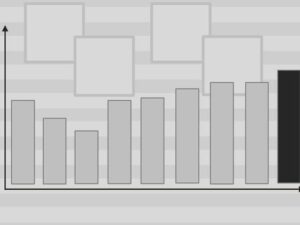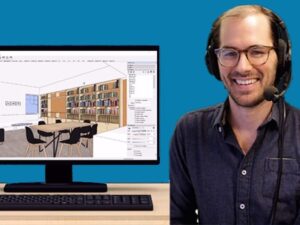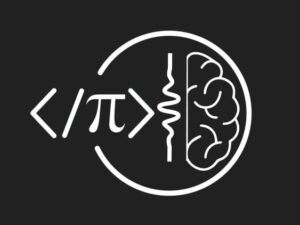Français Intensif - Intensive French Intermediate Level
- Descrição
- Currículo
- FAQ
- Revisões
Dive deeper into the realms of the French language. Familiarize yourself with more advanced grammatical structures and learn new vocabulary. In this course we’ll explore all the main areas of French grammar.
Discover How Fantastic the French Language Is and How Marvelous It Is To Use It Correctly.
- French Tenses
- The Passé Composé Tense
- Simple Arithmetic
- Ordinal Numbers, Fractions and Other Numerals
- Date and Time
- Deadjectival Adverbs
- Position of Adjectives
- Agreement of Adjectives and Nouns
- Comparison of Adjectives and Adverbs
- The Imparfait Tense
- Compound Nouns
- Nominalization
- Ways to Express the Future
- The Futur Simple Tense
- The Futur Antérieur Tense
- The Plus-que-Parfait Tense
- Indefinite Pronouns and Adjectives
- Conditionals
- The Subjunctive Mood
- Coordination and Subordination of Clauses
- Temporal Clauses
- Causal Clauses
- Final Clauses
- Concessive Clauses
- Consecutive Clauses
- Reported Speech
- Passive Voice
- … and more
Become a Highly Skilled User of French – It’s All Well Within Your Reach.
French is definitely one of the most popular languages in the world. There’s a whole bunch of benefits to knowing French. Let me just mention a few. In our global society you can make use of it in business, becoming a more valuable worker, in private life, on vacation, chatting online, reading literature and press or watching satellite TV. In some parts of the world French is either the main language spoken or one of the main ones. And I could go on and on like that…
This is an intensive course, which means it covers quite a lot of stuff. The explanations are concise and clear. You should have no difficulty following and understanding them. A lot of stuff and a lot of practice.
Contents and Overview
This course is pretty comprehensive, but the language I use is simple and should be easily understood by everybody.
This course is divided into 14 sections, each of them covering a broad topic subdivided into lectures. The pace is up to you, you can go through the easier parts faster and then take more time to study the more sophisticated ones.
To help you memorize and practice all the new stuff, there are loads of exercises. Most lectures are accompanied by additional resources. These are downloadable files with exercises (with key). There also files with vocabulary revision and, first of all, the main text file containing the material covered in the lecture video.
After you finish each section, there’s a quiz for you that covers the material discussed in that section.
After you finish this course you will be able to use the French language comfortably and correctly, understanding all the underlying rules and thus able to generate any constructions you want, in both spoken and written language. You will be able to use simple, compound and complex sentences and you will know what word order should be used. You will know how the language works and you will get a good feel of it.
-
1IntroductionVídeo Aula
In the introductory lecture I’ll tell you something about this course. I will tell you what you will learn in the course and who this course is best suited for.
-
2How to Use This Course Most EffectivelyTexto
In this lecture I will tell you how to use this course most effectively. We’ll talk about all the different types of activities this course offers.
-
3Introduction to Section 2Vídeo Aula
In this section we´ll talk about the Passé Composé Tense.
-
4French Tenses, Moods and Other Verb FormsTexto
In this lecture we´ll have an overview of all the French moods, tenses and other verb forms. This is just for reference, there´s no point learning all the forms now because we´ll be discussing them one by one later in the course.
-
5J’ai appris, est-il venu? – The Meaning and Formation of the Passé ComposéVídeo Aula
In this lecture we´ll see what the Passé Composé Tense looks like and how it is formed. We´ll talk about both regular and irregular verbs. Actually they work the same way, all you have to know is the irregular past participles. First of all we’ll talk about the tense itself: when is it used?
-
6On a parlé - Passé Composé with avoirVídeo Aula
Most verbs use the auxiliary verb avoir in the Passé Composé Tense. So, instead of listing all the cases when we use avoir, we’ll see just to some special cases and then, in the next lecture, we’ll discuss in detail when we use the auxiliary verb être. Then you will know when to use être, so in any other case you will most probably need avoir.
-
7On est allé - Passé Composé with êtreVídeo Aula
In this lecture we’ll discuss the cases when Passé Composé is used with the auxiliary verb être.
-
8Hier, d’abord, puis – Time ExpressionsVídeo Aula
In this lecture we’ll have a look at some common adverbs and other time expressions used with the past tenses.
-
9Je l’ai vu - The Passé Composé with Object PronounsVídeo Aula
In this lecture we’ll talk about direct and indirect object pronouns used in Passé Composé. We’ll see how the participles agree with the object pronouns.
-
10Section 2 Vocabulary RecapTexto
There´s hardly been any new vocabulary in this section so this lecture is really short. Just go ahead and have a look.
-
11Conclusion to Section 2Texto
In this lecture we’ll summarize what we’ve learned in this section.
-
12Introduction to Section 3Vídeo Aula
In this section we´ll be talking about numbers and time. We´ll learn some simple arithmetic, then we´ll talk about various types of numerals, like ordinal numbers or fractions. We´ll also learn to tell the time and date.
-
13Vingt moins trois – Simple ArithmeticVídeo Aula
At the beginning of the course we learned the cardinal numbers. In this lecture will be using them to perform simple arithmetic.
-
14Le premier, le deuxième - Ordinal NumbersVídeo Aula
In this lecture we´ll talk about ordinal numbers. We´ll see what they look like and how they are used.
-
15Il est une heure – Telling TimeVídeo Aula
In this lecture we´ll learn how to tell the time. We´ll learn some basic vocabulary related to time as well.
-
16Le deux janvier – DatesVídeo Aula
In this lecture we´ll learn how to tell the date. We´ll also learn the names of the days of the week, the months and the seasons of the year and lots of time expressions relating to the present, past and future.
-
17Demi, quart - FractionsVídeo Aula
In this lecture we´ll talk about fractions. Just in case you’ve forgotten: In order to make fractions we need two parts: the upper part is called the numerator and the lower part (under the fraction line) is called the denominator.
-
18Une vingtaine, double – Other Types of NumeralsVídeo Aula
There are just a few more types of numerals. In this lecture we´ll be talking about the two most important groups, the multiple and collective numerals. We´ll also see how to say both in French.
-
19Section 3 Vocabulary RecapTexto
In this lecture we will recap on the vocabulary that we´ve covered in this section but we will not revise all the numerals because they have been the main subject of this section and we would have to repeat almost everything here.
-
20Conclusion to Section 3Texto
In this lecture we’ll summarize what we’ve learned in this section.
-
21Introduction to Section 4Vídeo Aula
This section is all about adjectives and adverbs. We´ll see how adverbs are formed from adjectives and which position they occupy in a sentence. We´ll see how to compare adjectives and adverbs.
-
22Vrai, vraiment – Deadjectival AdverbsVídeo Aula
In English there´s a group of adverbs that are formed from adjectives by means of the ending –ly. There is a similar group in French too, but the ending is naturally different. These adverbs are the subject of this lecture.
-
23Je danse mal – Using AdverbsVídeo Aula
Adverbs may occupy a whole range of positions in a sentence. They may be at the beginning of a sentence or at the end of the sentence. They may be inside the sentence, before or after the word they modify. As we know, adverbs are used to modify verbs, adjectives and participles, other adverbs and also whole sentences. In this lecture we´ll see where the adverbs in each of the above cases.
-
24Parfois, jamais – Positive and Negative AdverbsVídeo Aula
In this lecture we’ll be talking about pairs of positive and negative adverbs, like always and never. We’ll pay special attention to the negative ones because we usually get rid of the pas part of the negation.
-
25Un beau livre – Position of AdjectivesVídeo Aula
In French adjectives may either follow or precede the nouns they modify. Most descriptive adjectives follow the noun. On the other hand, some adjectives are used before the noun they modify. In this lecture we’ll talk about the position of adjectives.
-
26Fleurs et arbres verts – Agreement of Adjectives and NounsVídeo Aula
Normally adjectives agree in gender and number with the noun they modify. But what if there are more nouns and, even worse, some are masculine and others feminine? Should the adjective then be masculine or feminine? Well, let´s find out.
-
27Plus chaud, moins froid – Comparison of AdjectivesVídeo Aula
In this lecture we´ll see how to compare adjectives. We´ll see how to make comparative and superlative forms. First, we´ll focus on regular ones, we´ll discuss the irregular ones in the next lecture.
-
28Plus souvent, moins souvent - Comparison of AdverbsVídeo Aula
In this lecture we´ll see how to compare adverbs. We´ll see how to make comparative and superlative forms. In this lecture we´ll focus on regular ones, we´ll discuss the irregular ones in the next lecture.
-
29Meilleur, pire – Irregular ComparisonsVídeo Aula
Some adjectives and adverbs have irregular comparative and superlative forms. In this lecture we´ll learn how to use them.
-
30Section 4 Vocabulary RecapTexto
In this lecture we´ll recap on the new vocabulary that has been introduced in this section.
-
31Conclusion to Section 4Texto
In this lecture we’ll summarize what we’ve learned in this section.
-
32Introduction to Section 5Vídeo Aula
We already know a tense which can be used to talk about the past, the Passé Composé Tense. In this section we´ll learn another, the Imperfect Tense (Imparfait).
-
33J’étais, il était – Imperfect Tense of the Verb to beVídeo Aula
The Imperfect Tense is used to talk about continuous, habitual or repeated actions in the past. It’s often used to describe the background actions of other actions expressed in Passé Composé. It’s also used to talk about lasting states in the past. In this lecture we’ll talk about the Imperfect forms of the verb être (to be), which is the only irregular verb in this tense. In the next lectures we’ll cover all the other verbs.
-
34Je chantais, nous chantions – The Imperfect Tense FormsVídeo Aula
Imperfect Tense forms are easy to make. They are based on the first person plural and are made by means of personal endings. In this lecture we’ll see how.
-
35On parlait – The Meaning of the ImparfaitVídeo Aula
In this lecture we´ll have a closer look at the most typical situations when the Imperfect Tense is used. We´ll also see how it relates to the Passé Composé Tense.
-
36Je travaillais, j’ai travaillé – Passé Composé vs ImparfaitVídeo Aula
In this lecture we’ll be talking about the main differences between the two past tenses we know. We’ll see when to use the Imperfect Tense and when to use Passé Composé.
-
37Section 5 Vocabulary RecapTexto
In this section there has been hardly any new vocabulary. Let´s recap.
-
38Conclusion to Section 5Texto
In this lecture we’ll summarize what we’ve learned in this section.
-
39Introduction to Section 6Vídeo Aula
In this section we´ll concentrate on nouns. We´ll talk about the main categories associated with nouns like gender and number. We´ll also see how to use compound nouns and how to use other parts of speech as nouns.
-
40-age, -eau, -ment - Gender According to EndingVídeo Aula
Although sometimes it’s impossible to say what gender a noun is judging by its form, on other occasions it’s possible to guess, at least with a pretty high degree of probability. In this lecture we´ll have a look at some endings that are typically masculine or feminine.
-
41Un danseur, une danseuse – Feminine FormsVídeo Aula
Some nouns are used in male-female pairs, like for instance man-woman, brother-sister or waiter-waitress. In this lecture we´ll see how to make feminine forms from the masculine ones. We´ll also see some irregular examples.
-
42Porte-monnaie – Compound NounsVídeo Aula
In French we can combine two words belonging to practically any part of speech into compound nouns. In this lecture we´ll see how to do it, we´ll talk about the characteristics of compound nouns and we´ll learn some examples. One thing that is a bit complicated is making plurals. There are a couple of ways to make the plural forms depending on what parts of speech make the compound noun. So, let’s have a look at the most important combinations.
-
43Chanter, la petite - What Else Can Be a Noun?Vídeo Aula
Nouns constitute the major part of French vocabulary. But not only real nouns can function as nouns. In this lecture we´ll see how verbs, adjectives, numerals and other parts of speech can function as nouns. In this lecture we’ll concentrate on adjectives and verbs functioning as nouns.
-
44Section 6 Vocabulary RecapTexto
In this lecture we´ll recapitulate on the new vocabulary that we´ve mastered in this section. This time these are just nouns.
-
45Conclusion to Section 6Texto
In this lecture we’ll summarize what we’ve learned in this section.
-
46Introduction to Section 7Vídeo Aula
There are a couple more tenses in French we haven’t covered so far. We’ll do it right in this section. First we’ll introduce the Future Simple Tense and then we’ll talk about some slightly more complicated tenses.
-
47Je chanterai – The Futur Simple Tense of Regular VerbsVídeo Aula
In this lecture we´ll talk about the Future Tense. Essentially it´s used like the English Future Simple Tense, although there are some differences that we´ll address in one of the next lectures. Anyway, here we´ll talk about regular verbs and in the next lecture about irregular ones.
-
48Je viendrai – The Futur Simple Tense of Irregular VerbsVídeo Aula
Most verbs are regular in the future tense. There are also quite a few that are slightly different. They do not differ in their endings. They just have different stems. This group includes some of the most frequently used verbs. In this lecture we´ll have a look at the most important ones one by one.
-
49J’aurai écrit – The Futur Antérieur TenseVídeo Aula
In this lecture we’ll be talking about another future tense, the Futur Antérieur Tense, which more or less corresponds to the Future Perfect Tense in English. So, it is used to describe an action which will be completed before a given time in the future. It may be also used to express probability.
-
50J’avais terminé – The Plus-que-Parfait TenseVídeo Aula
In this lecture we´ll move from the future all the way down to the deepest past. The topic of this lecture is the Pluperfect Tense or Plus-que-Parfait in French, which is used in much the same way as the Past Perfect Tense in English.
-
51Section 7 Vocabulary RecapTexto
This has been one of the sections with least new vocabulary. Let´s go through it again.
-
52Conclusion to Section 7Texto
In this lecture we’ll summarize what we’ve learned in this section.
-
53Introduction to Section 8Vídeo Aula
In this section we’re going to dive into the world of indefinite pronouns and adjectives. We’ve been using some of them on a regular basis so far, others may be new to you.
-
54Quelque chose ou rien – Something or NothingVídeo Aula
In this lecture we´ll talk about two common indefinite pronouns, quelque chose and rien. They mean something and nothing respectively, they may also mean anything. We´ll see how they are used in affirmative, interrogative and negative sentences.
-
55Quelqu’un ou personne – Someone, Anyone or No OneVídeo Aula
In this lecture we´ll talk about some more indefinite pronouns. This time we´ll see to the pronouns someone and no one. We´ll see how to use them in affirmative, interrogative and negative sentences.
-
56Quelque, aucun – Some, Any, NoneVídeo Aula
Quelque / quelques, quelques-uns / quelques-unes and aucun / aucune are very important indefinite adjectives and pronouns, which are used to say some, any or none. In this lecture we´ll see how it all works.
-
57Quiconque, n’importe qui, n’importe quoi – Any, Anyone, Whichever, WhereverVídeo Aula
In this lecture we´ll talk about other indefinite pronouns like quiconque, n’importe quoi and n’importe qui. These are used to say that it doesn´t matter which person, animal or object you mean.
-
58Tout, chacun – Each, Every, All, WholeVídeo Aula
In this lecture we´ll be talking about tout and chacun. They are both used in a couple of forms and function as both adjectives and pronouns.
-
59L’un, un autre, l’autre – One, The Other, AnotherVídeo Aula
In this lecture we´ll be talking about the different flavors of the adjective and pronoun autre. We’ll also talk about the pronouns l’un, les uns, etc.
-
60Section 8 Vocabulary RecapTexto
As usual, in this last but one lecture in the section we´ll have a look at all the new vocabulary. But no worries, there hasn´t been much.
-
61Conclusion to Section 8Texto
In this lecture we’ll summarize what we’ve learned in this section.
-
62Introduction to Section 9Vídeo Aula
You already know the indicative mood and the imperative mood. In this section we’ll talk about the subjunctive mood. This mood is widely used in French even in relatively simple constructions.
-
63Que vous écoutiez - Present Subjunctive Forms of Regular VerbsVídeo Aula
In this lecture we´ll see how the subjunctive forms of regular verbs are made. We´ll also talk about the use of subjunctive mood in French. But in this lecture we’ll only discuss the very basic use of subjunctive mood. We’ll go into much more detail in the following lectures. Any-way, although subjunctive mood is also used in English, in French it’s used on a much larger scale and there are many situations when it must be used. In this lecture we’ll discuss regular verbs, or, to be more precise, verbs whose subjunctive forms are made in a regular way. There are some irregular verbs that make their subjunctives in a regular way and they will be covered here as well.
-
64Que tu le saches - Present Subjunctive Forms of Irregular VerbsVídeo Aula
There are also some irregular verbs to learn. We can distinguish two groups here. In the first group we have verbs that have two stems in subjunctive mood. In the first and second person plural they take the stem from the nous form. In all other persons they follow the pattern we already know, so they take the stem from the third person plural. In the other group we have completely irregular subjunctive stems. The endings, however, are in most cases the same.
-
65Il faut qu’il vienne – When do we use the Present Subjunctive Mood?Vídeo Aula
In this lecture we´ll discuss some of the most typical cases in which the subjunctive mood is used. These are by far not all the possible situations because there are lots of verbs and expressions that are used with subjunctive mood, but you should get the general idea and feeling for subjunctive mood.
-
66Demander de, demander que - Subjunctive vs InfinitiveVídeo Aula
There are some verbs and expressions that are sometimes used with subjunctive mood and sometimes with infinitives. We will be talking about them in this lecture and we´ll see when to use the former and when the latter.
-
67Qu’il fait ou qu’il fasse – Indicative vs SubjunctiveVídeo Aula
There are some verbs and expressions that are sometimes used with indicative mood and in other circumstances with subjunctive mood. We will be talking about them in this lecture and we´ll see when to use the former and when the latter.
-
68Qu’elle ait eu - Past SubjunctiveVídeo Aula
In this lecture we´ll be talking about the Past Subjunctive. What we need is the Present Subjunctive form of the auxiliary verb avoir or être and the past participle.
-
69Section 9 Vocabulary RecapTexto
Time to recapitulate. This section has not been extremely rich in new vocabulary. Let´s just revise all the new verbs and expressions.
-
70Conclusion to Section 9Texto
In this lecture we’ll summarize what we’ve learned in this section.
-
71Introduction to Section 10Vídeo Aula
We´ve been using compound sentences for a long time now but we haven´t discussed this subject in great detail. In this section we´ll see how we can join clauses into sentences by means of conjunctions. There are lots of different types of compound clauses, but we´ll try to keep things simple.
-
72Et, ou, ni, mais – Coordinating ConjunctionsVídeo Aula
Coordinating conjunctions, which are the subject of this lecture, are used to join clauses or single words. The most typical ones are and, but, or, nor, because etc.
-
73Il dit que, il ne sait pas si – Subordinating ConjunctionsVídeo Aula
In this lecture we´ll be talking about the two most common subordinating conjunctions, that and if/whether. Naturally, there are lots more. We´ll be discussing them one by one in the following lectures.
-
74Avant que je le fasse – Temporal ClausesVídeo Aula
In this lecture we´ll learn the most important temporal conjunctions and we´ll see when they should be used with indicative, when with subjunctive and when with infinitive forms.
-
75Parce que je t’aime – Causal ClausesVídeo Aula
In this lecture we´ll talk about a couple of conjunctions that all mean something like since, because or because of. French is really rich in such conjunctions, here we´ll stick just to the three most used ones.
-
76Afin qu’il vienne - Final ClausesVídeo Aula
In this lecture we´ll be talking about final clauses. These are clauses with conjunctions like in order to, so that. We´ll see how they work in French.
-
77Bien qu’il soit venu – Concessive ClausesVídeo Aula
In this lecture we´ll talk about concessive clauses. These are clauses with conjunctions like although, even if, despite, etc.
-
78De telle sorte que j’arrive – Consecutive ClausesVídeo Aula
The last group of conjunctions we´re going to discuss in this section includes so, therefore, so that, that´s why, etc. These conjunctions are used in consecutive clauses, which are the subject of this lecture.
-
79Section 10 Vocabulary RecapTexto
In this lecture we´ll have another look at all the new words. These are largely conjunctions, but not only.
-
80Conclusion to Section 10Texto
In this lecture we’ll summarize what we’ve learned in this section.












